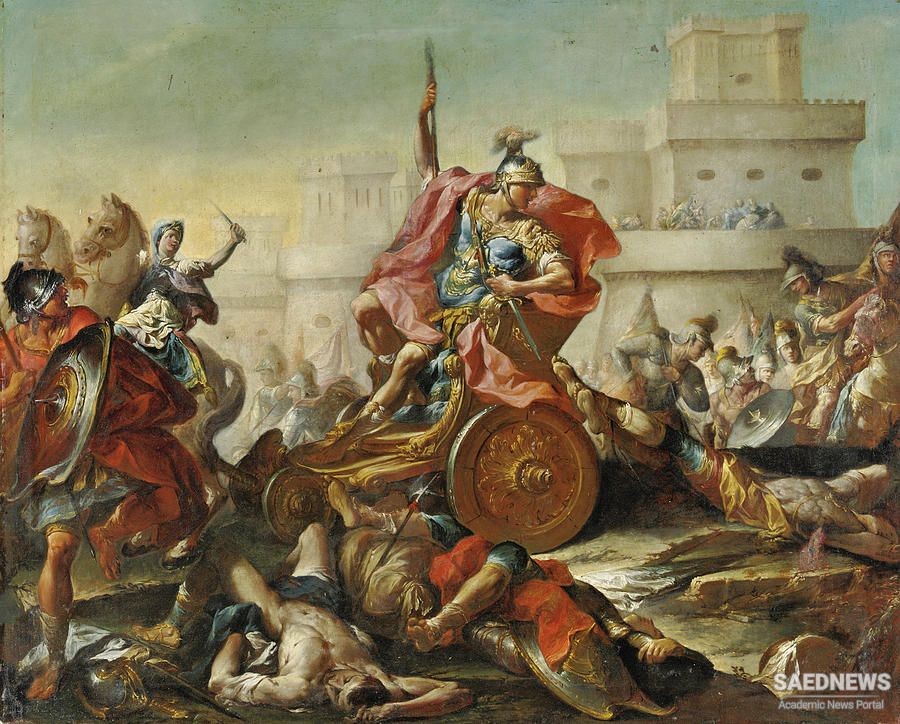In 492 bc the Persian army marched into Europe and moved west along the Athos Peninsula between Macedonia and Thrace, where it was joined by a Persian fl eet for the push toward Athens. A sudden gale caught the fleet in an unprotected position off the coast from Mount Athos, and three hundred ships with all hands were lost. This initial invasion was abandoned, but, undeterred, Darius issued orders to create a larger amphibious force that would advance directly across the Aegean Sea and land close to Athens. In late summer of 491 bc the Persians assaulted the island of Euboea and captured, plundered, and burned Eretria, one of the city- states that had supported the Ionian revolt. By early 490 bc, the Persian commander had positioned his forces on the open beach at Marathon to try to exact Darius’s retribution on the Athenians. The goal of the imperial forces’ landing at Marathon was to draw the Athenian military out of the city while half the Persians sailed around Att ica, where it was hoped an antidemocratic faction plott ing to reclaim power in Athens with Persian support would surrender the city to them. After a standoff of several days, the Greeks att acked the Persian expeditionary force when most of the Persian cavalry left the field, either to embark on transports for the dash by sea to Athens or simply to get the horses watered. The Greek phalanx, which had been strengthened on the wings and thinned in the center, faced a Persian line in which the best troops, reinforced by picked tribal warriors from the eastern frontier, were in the center while less reliable units were stationed on the fl anks. Without cavalry to disrupt the Greek att ack, the Persian lines were in a much weaker position to stop the spear- and sword- bearing hoplites in the advancing Greek phalanxes. In the face of the onrushing bronze- clad Greek soldiers, the Persian archers were able to unleash only a few arrows before retreating behind their spearmen.


 Renewal of Maritime Prowess under Darius and Beginning of Persian Expansionism
Renewal of Maritime Prowess under Darius and Beginning of Persian Expansionism














































